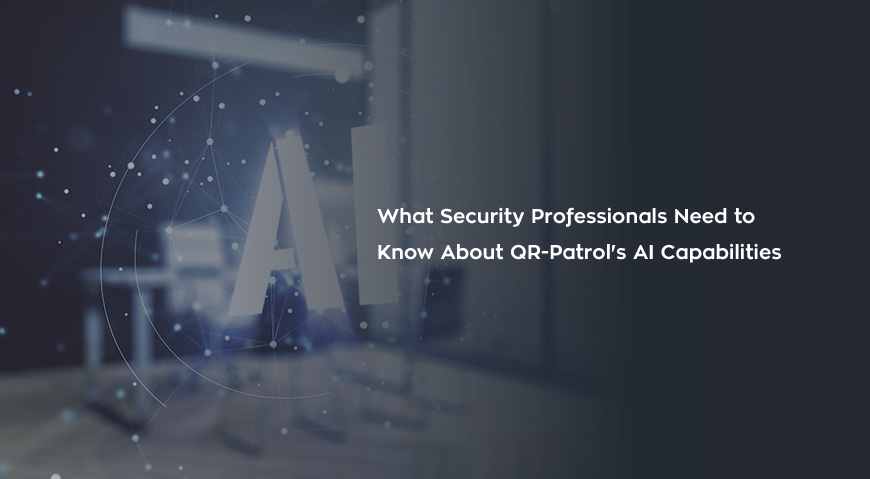- Posted by: blignos
- Published: 20-05-2024
- Category: Security articles
What Security Professionals Need to Know About QR-Patrol's AI Capabilities
Artificial Intelligence (AI) has revolutionized the way professionals manage and respond to security challenges. QR-Patrol, a pioneering platform in security management, has harnessed the power of AI to enhance its capabilities significantly. For security professionals, comprehending QR-Patrol's AI-driven functionalities is crucial in maximizing the platform's potential and optimizing security operations.
- 1 Predictive Analytics: One of the standout features of QR-Patrol's AI capabilities lies in its predictive analytics. By analyzing historical data and patterns, the AI algorithms can forecast potential security threats or vulnerabilities. This empowers security professionals to proactively address emerging risks, preventing incidents before they occur.
- 2 Intelligent Incident Response: Algorithms integrated into QR-Patrol enable intelligent incident response. Through real-time data analysis and machine learning, the platform can prioritize alerts, categorize incidents, and suggest optimal response strategies. This not only streamlines response times but also enhances the efficacy of security protocols.
- 3 Behavioral Analysis: QR-Patrol's behavioral analysis is instrumental in identifying anomalies or suspicious patterns. By continuously learning from data inputs, the NLP AI can detect deviations from normal behavior, alerting security personnel to potential security breaches or irregularities.
For security professionals, understanding and harnessing QR-Patrol's AI capabilities offer several advantages:
- 1 Proactive Risk Mitigation: The predictive analytics provided by AI empower security professionals to anticipate and mitigate risks before they escalate. By identifying potential threats early, proactive measures can be implemented, bolstering security protocols.
- 2 Efficiency and Resource Optimization: AI-driven incident response and behavioral analysis streamline security operations. This efficiency minimizes false alarms, optimizes resource allocation, and ensures that security personnel focus their efforts on critical issues.
- 3 Real-Time Decision Support: The AI capabilities in QR-Patrol provide invaluable real-time support to security professionals. Analyzing complex data sets swiftly, the AI assists in making informed decisions, enabling quick and effective responses to dynamic security situations.
- 4 Continuous Learning and Improvement: QR-Patrol's AI is constantly learning from new data inputs and incidents. This continuous learning loop facilitates ongoing improvement in threat detection and response strategies, enhancing the platform's effectiveness over time.
Challenges and Future Developments
Despite the myriad benefits, challenges exist in maximizing the potential of AI in security operations. These include data privacy concerns, the need for specialized training for personnel, and ensuring the ethical use of AI in decision-making processes.
Looking ahead, the future developments in QR-Patrol's AI capabilities are promising. Advancements in machine learning algorithms, integration of more sophisticated AI models, and the incorporation of edge computing could further enhance the platform's intelligence and responsiveness.
The bottom line
QR-Patrol's integration of AI capabilities signifies a paradigm shift in security management. For security professionals, embracing and leveraging these AI-driven functionalities are pivotal in navigating the complexities of modern security challenges. From predictive analytics to intelligent incident response, AI empowers professionals to proactively safeguard assets and lives. As AI continues to evolve, QR-Patrol stands as a testament to the transformative potential of AI in redefining the landscape of security solutions, offering a more efficient, proactive, and intelligent approach to security management.
Written by Maria-Christina Antoniou

















